BS Reporters in Mumbai
The signs were visible for a while, but reality has finally hit home.
Worse, corporate India has almost resigned to the idea of a further slowdown ahead, in spite of the government's predictable assurance that from here growth will begin to improve.
Some see clear signs of a slowdown where it would hurt the most -- rural India. R Seshasayee, executive vice-chairman, Ashok Leyland, says: "This was totally unexpected.
While ground realities have been pointing to this trend, demand was strong on the rural side.
. . .
'Don't be surprised if growth rate slips below 7% next year'
Had it continued like that, there would not have been any major problem. But now rural demand does not appear to be on a firm ground. In other words, demand is slowing down in the rural markets. This is significant."
Seshasayee should know.
Ashok Leyland, the second-largest commercial vehicle maker in India, has seen its sales fall by close to eight per cent from April to October.
Ashok Leyland's performance mirrors the industry's performance.
This year, the automobile sector has grown at a slower pace than last year. The growth rate stood at 12 per cent from April to October, compared to 30 per cent in the same period last year.
. . .
'Don't be surprised if growth rate slips below 7% next year'
The trend is no different in other sectors of the core industry; mining, for example.
"Low mining output, particularly of thermal coal, has significant implications on various manufacturing sectors, too.
"Essentially, it's been a vicious cycle. To be fair, severe monsoon and ban on iron ore mining in Karnataka have also had roles in pulling down mining output," said Subhrakant Panda, MD, Indian Metals & Ferro Alloys Ltd.
Some see the full-year GDP growth at 7 per cent.
"That is clearly not good enough and a cause for worry," says Ficci President and Marico chairman and managing director Harsh Mariwala.
. . .
'Don't be surprised if growth rate slips below 7% next year'
Image: Adi Godrej.Photographs: Satish Bodas,
Godrej Group chairman Adi Godrej says the situation could worsen if the government does not hasten reforms like the Goods & Services Tax and the manufacturing policy or stay firm with FDI in retail.
"Don't be surprised if GDP growth is below the 7 per cent mark next year," he says.
TVS Motors chairman and managing director Venu Srinivasan thinks, going forward, manufacturing will remain in the low range of 2-3 per cent, impacting indirect tax collections.
He sees the gross domestic product growth closing at 7 per cent this year, and dipping to 6.7 per cent in the next.
. . .
'Don't be surprised if growth rate slips below 7% next year'
India Inc is quick to point at the factors.
H M Bharukha, managing director, Kansai Nerolac, says: "The monetary policy of the Reserve Bank of India has been a key contributor to the slowdown. Instead of taming inflation, it has actually impeded growth."
Godrej agrees, but says the inability to take decisions on key reforms has also impacted the sentiment.
In the last one year, there has been a logjam in Parliament over key issues ranging from 2G to price rise, corruption, and, now, FDI in retail.
This sense of policy paralysis has clearly hit the sentiment, with most in industry wondering whether they should make investments for the future or not.
. . .
'Don't be surprised if growth rate slips below 7% next year'
Add to this the worsening global economic scenario, most appear to have withdrawn steps to undertake major expansions for now.
While company executives have been cautious, saying they have put their plans on hold, some have suggested indirectly.
Prabal Banerjee, CFO, Adani Power, says: "Rising cost of capital is not the only hindrance, even with capital markets, there is no chance of raising money. Money markets are tight, exports are affected.
"Globally, everything has been coming down."
. . .
'Don't be surprised if growth rate slips below 7% next year'
In the last 18 months, RBI has raised policy rates by 375 basis points, and, consequently, interest rates by around 250 basis points.
The capital markets have been in a tailspin, with the key indices -- BSE Sensex and NSE Nifty -- in the red.
What is the way out? Industry captains propose that the government begin sending out positive signals that things are in control.
"You have to somehow take the political parties all along or simply show that you are committed to reforms," says Godrej.
"The government has to get back into the business transaction mode.
"Policy stances will have to be cleared and consensus has to be built on important issues pertaining to land acquisition, environment, coal mining, gas prices, among others," says R Shankar Ram, chief financial officer, Larsen & Toubro.
. . .
'Don't be surprised if growth rate slips below 7% next year'
Most say aggressive rate increases by RBI over the past 20 months to cool inflation have crimped industrial expansion, adding to the pressure from a gloomy global economy, which has hurt Indian exports.
The slow pace of economic reforms and a series of graft charges against the government have further soured sentiments, hurting foreign investment.
The growth slowdown has also cemented the expectations that RBI will hold its policy rate steady at its next review on December 16, and may even begin to cut rates in the first half of next year.
. . .
'Don't be surprised if growth rate slips below 7% next year'
SAIL chairman C S Verma, is, however, more optimistic.
"The dip is temporary.
"The GDP data cannot be compared on a quarterly basis. It must be compared on an annual basis to assess the actual growth .In our country, the projected investment in infrastructure for the 12th Plan is $1 trillion and this kind of investment has never been proposed before," he says.
Ranjit Shahani, vice-chairman & MD, Novartis India, and president, Organisation of Pharmaceutical Producers of India, says the spend on pharmaceuticals is non-discretionary.
So, a fall in GDP from 7.7 per cent to 6.9 per cent is unlikely to make an impact.
"However, if the GDP growth falls further -- we hope it will not -- some discretionary spend on over-the- counter products may reduce, as was the case in the US," he adds.

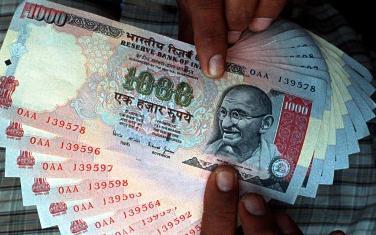
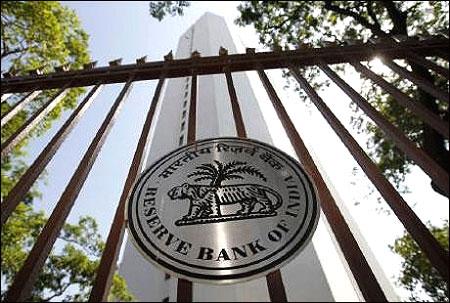

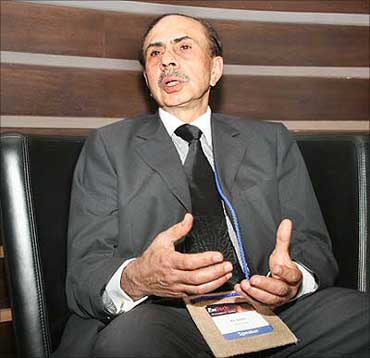

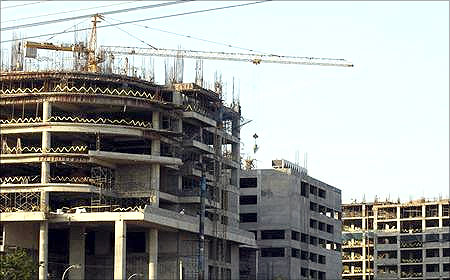
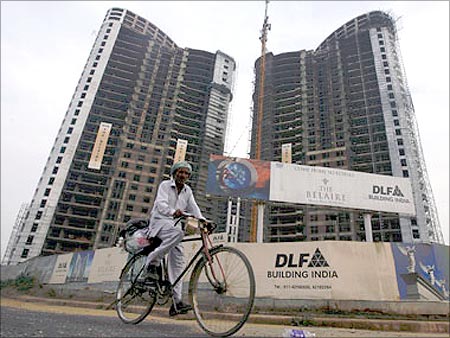
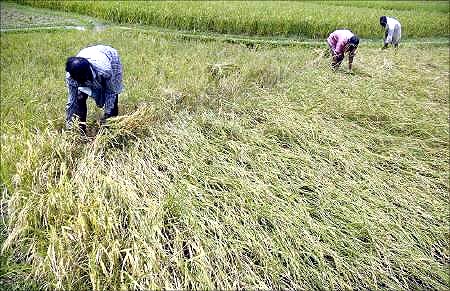
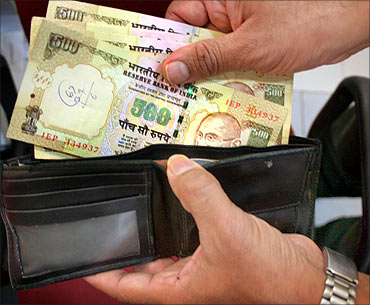

article